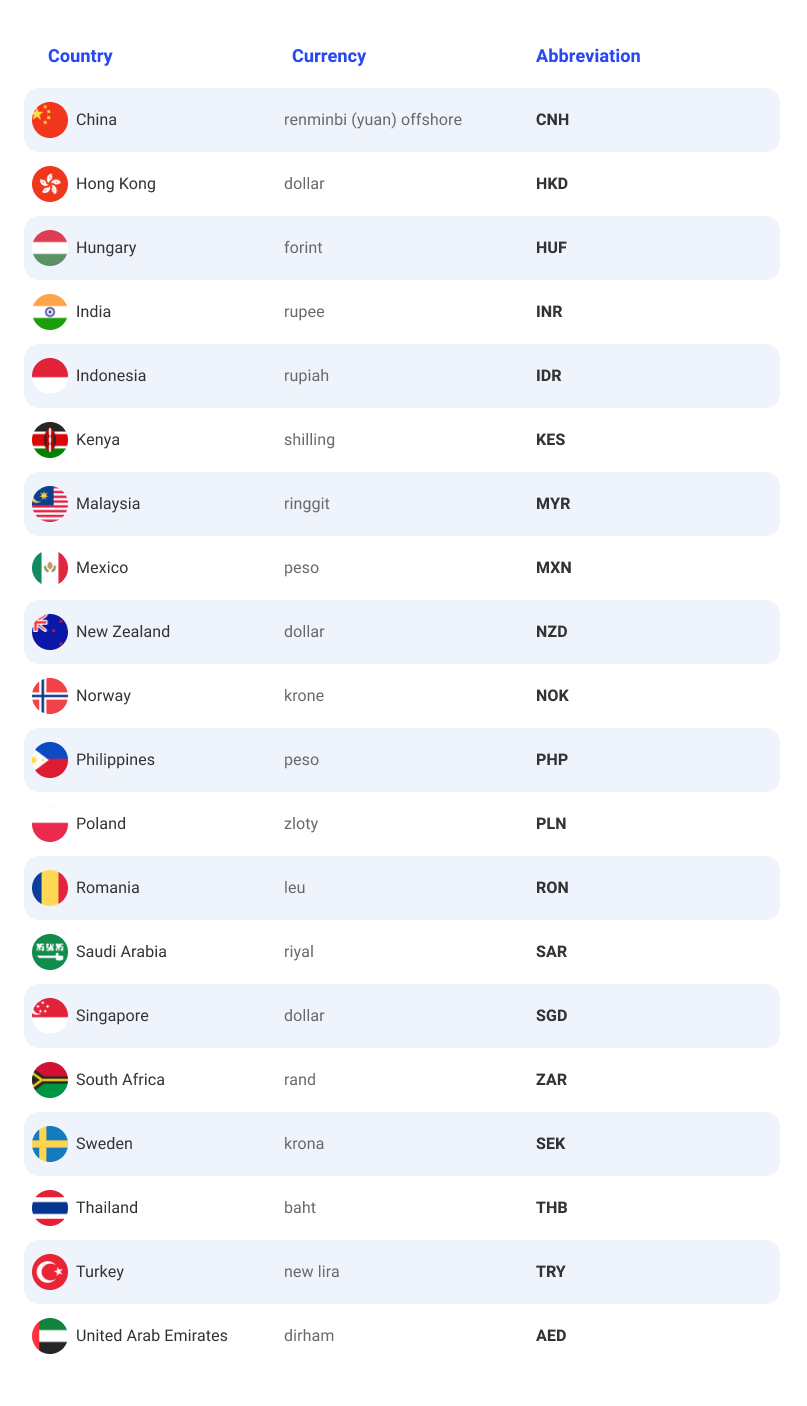What is exotic currency trading? Or how do I send $1M to a supplier in Thai baht?

Exotic currency is the name given to foreign currencies not commonly traded in the global forex market. Typically, exotic currencies are characterized by high volatility, low liquidity and aren’t traded globally. Exotic currencies tend to be associated with emerging economies.
Because most people who are trading in currencies don’t typically touch or understand these currencies they present a variety of threats and opportunities to businesses that either must or wish to conduct business in exotic currencies.
Below is a table of the some of the exotic currencies that okoora supports on its ABCMTM platform.

Difficulties posed by exotic currencies
Exotic currencies have lower liquidity pools because they are less widely traded. In part, this is due to the fact the exotic currencies are often subject to partial or total exchange rate controls and are highly affected by political instability. This lack of liquidity results in less favorable spreads between the bid and ask prices. It can also lead to delays between the transaction date and the corresponding value date for transactions denominated in an exotic currency.
Usually, exotic currencies also have fewer options for risk management, i.e. less hedging strategies available to protect against unfavorable changes in the exchange rate. Lastly, exotic currencies usually have higher volatility than major currencies due to being associated with what usually are developing economies and emerging markets
All this exposes businesses using exotic currencies to higher levels of foreign currency risk.
The okoora ABCM advantage
Exotic currency trading with ABCM opens up additional channels to increase liquidity and hedging options, as well as simplifying the transfer and receipt of such currencies. For example, okoora’s connections to foreign financial institutions enable the transfer of payments in currencies not usually traded in the customer’s home market using local transfer schemes in the target market. Not only does this added liquidity reduce the cost of converting currencies and diminish foreign currency risk, but it also makes cross-border operations run more smoothly.
To ask about your options managing accounts with a specific foreign currency, ask an expert.
